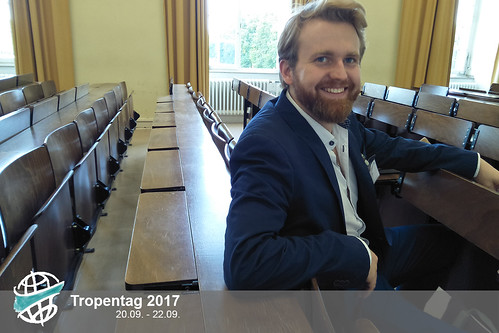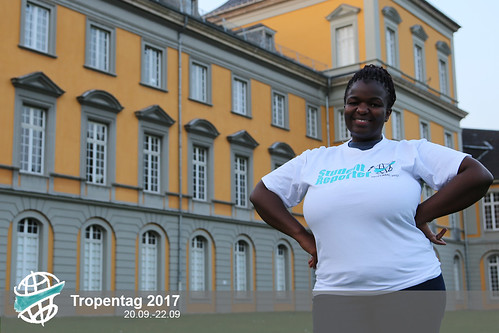ICIPE
Dinner is Served...the Desert Locust!
Thu, 09/21/2017 - 18:06 — lizkusiaPhillip Straub, a first-time participant at Tropentag has developed a diet for the desert locust. The outstanding young German researcher submitted an abstract from his Bachelor’s degree thesis. He was overwhelmed after hearing he was selected for an oral presentation. To say the least, he was very excited. Philip is convinced that insects for food is the next big thing. “There are new developments every day, it is exciting,” he said. Philip won a GIZ scholarship to carry out his research project at the International Centre of Insect Physiology and Ecology (ICIPE), Kenya.

He sought to develop a storable diet for the desert locust that could be used for mass rearing. The desert locust is consumed by humans and can also be used as an animal feed supplement. He tested five different formulations for human food. They mainly consisted of powdered cowpea, cornmeal, soy bean and carrots in different ratios. Some were enriched with multivitamins. Two diets worked well. “My findings are a starting point for optimizing diets with a longer shelf-life for insects,” he explains.





